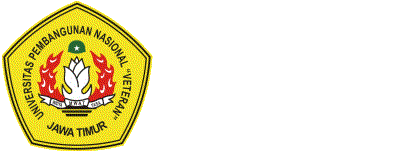Sagala, Yosua Nathanael Itona and Kusuma, Ramadhani Mahendra and Suharto, Suharto (2023) Mass Propagation of Antagonistic Bacteria Pseudomonas fluorescens as an Environmental -Friendly Biocontrol Agent. In: Seminar Nasional Magister Agroteknologi 2022, Surabaya.
|
Text (Preceeding Nasional Seminar Agrotechnology)
890-Article Text-2724-1-10-20230331.pdf - Published Version Download (335kB) | Preview |
Abstract
Biological control is a long-term and environmentally friendly method of pest management. The use of biological control agents has several advantages. These advantages include limiting the growth and development of plant-disrupting organisms over a relatively long period. Furthermore, biological agents have advantages in maintaining the equilibrium of the ecosystem that is present in agricultural environments. Due to their ability to create antimicrobials and stimulate plant development, as well as the fact that they are plant growth promoting rhizobacteria (PGPR) and can survive in adverse environmental circumstances, antagonistic bacteria are one of the biological or biocontrol agents for managing illness. Antagonizing microorganisms can boost plant resilience to disease attack without polluting the environment or leaving toxic residues in the food chain Bacteria with good antagonistic agent properties can prevent the growth of pathogens and stimulate plant resistance responses. In addition, antagonistic bacteria can simultaneously boost the growth response of plants (plant growth promoter). One of the antagonistic bacteria used as PPGF is Pseudomonas fluorescens. Pseudomonas fluorescens has been widely recognized as having the potential as a biological agent to inhibit several plant pathogens. P. fluorescensis a group of root bacteria that effectively suppresses various plant diseases, including damping off of seedlings, soft rot, bacterial wilt, and others on many plant varieties. An antibiotic substance produced by P. fluorescens (2,4-diacetylphloroglucinol/ 2,4-DAPG) can increase soil resistance to pathogens.
| Item Type: | Conference or Workshop Item (Paper) |
|---|---|
| Subjects: | S Agriculture > SB Plant culture > SB950-989 Pest Control and Treatment of Diseases, Plant Protection S Agriculture > SB Plant culture > SB599-990.5 Pests and Diseases |
| Divisions: | Faculty of Agriculture > Departement of Agritechnology |
| Depositing User: | Ramadhani Mahendra Kusuma, S.P., M.P., M.Sc |
| Date Deposited: | 11 Apr 2023 03:45 |
| Last Modified: | 11 Apr 2023 03:45 |
| URI: | http://repository.upnjatim.ac.id/id/eprint/12670 |
Actions (login required)
 |
View Item |
